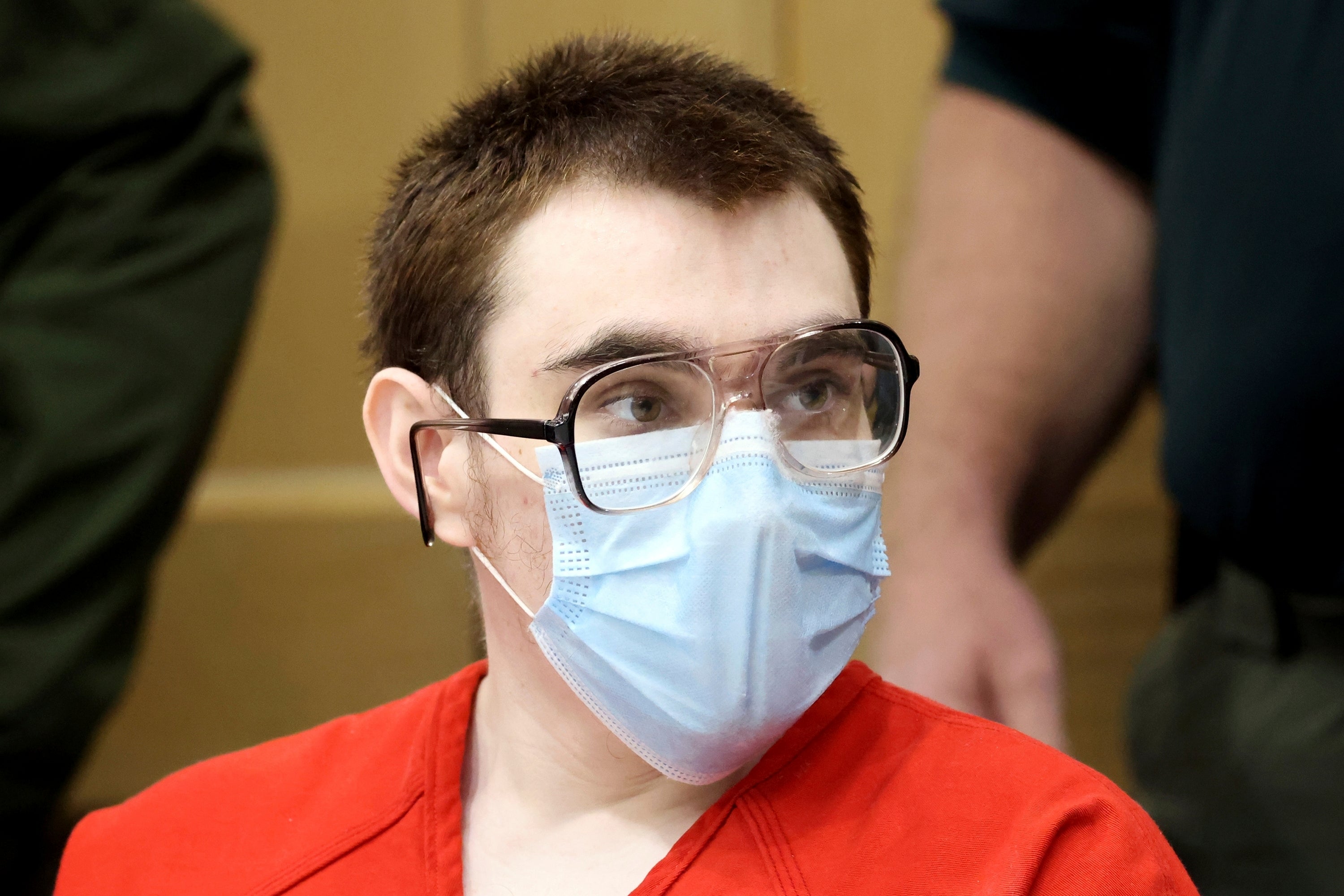Parkland, Florida, school shooter's trial delayed again
The penalty trial of Florida school shooter Nikolas Cruz will be delayed until April

Your support helps us to tell the story
From reproductive rights to climate change to Big Tech, The Independent is on the ground when the story is developing. Whether it's investigating the financials of Elon Musk's pro-Trump PAC or producing our latest documentary, 'The A Word', which shines a light on the American women fighting for reproductive rights, we know how important it is to parse out the facts from the messaging.
At such a critical moment in US history, we need reporters on the ground. Your donation allows us to keep sending journalists to speak to both sides of the story.
The Independent is trusted by Americans across the entire political spectrum. And unlike many other quality news outlets, we choose not to lock Americans out of our reporting and analysis with paywalls. We believe quality journalism should be available to everyone, paid for by those who can afford it.
Your support makes all the difference.The penalty trial of Florida school shooter Nikolas Cruz will be delayed until April after prosecutors told the judge Wednesday that they needed more time to interview the mental health experts who are expected to testify on his behalf.
Circuit Judge Elizabeth Scherer reluctantly moved the start of jury selection from Feb. 21 until the first week of April after attorneys for both sides conferred behind closed doors. That will be almost four years and two months after the Feb. 14, 2018, shooting at Marjory Stoneman Douglas High School in Parkland that left 14 students and three staff members dead and 17 wounded.
The trial was originally expected to begin in 2020 but has been delayed numerous times because of the coronavirus pandemic and the more than 1,000 potential witnesses who need to be interviewed. Under Florida law, prosecutors and defense attorneys are allowed to interview the other side's witnesses before trial so they know what they are expected to say and can prepare their cross-examination.
Prosecutors told Scherer that the defense has now presented 16 mental health experts and expects to add up to five more who might testify on Cruz's behalf. Many had been unable to interview Cruz until recently because the Broward County jail had been closed to most outsiders since the pandemic began in March 2020. The experts have since been able to speak with Cruz and are now being interviewed by prosecutors. In addition, a mental health expert hired by the prosecution will interview Cruz in two weeks, after which the defense will need to interview that expert.
“I don't think I have a choice but to delay,” a frustrated Scherer said. She and the attorneys agreed that the delays, while necessary, are frustrating to the victims' families who are organizing their lives around the trial.
Cruz, 23, pleaded guilty in October to 17 counts of first-degree murder and 17 counts of attempted murder, but a jury must still decide whether he will be executed or receive a life sentence without parole. The trial is expected to last at least two months.
In other issues discussed at Wednesday's hearing, Scherer ruled that the prosecution does not have to pare down its possible witness list of 1,100 people, the majority of whom will not testify.
Cruz attorneys argued that having such a large list is the equivalent of having no list at all because it makes it impossible to prepare. But Scherer agreed with lead prosecutor Mike Satz, who said he can't eliminate any witnesses because someone's testimony might be unexpectedly needed and then the defense will object that the person isn't on the list.
Scherer said she will decide later on a motion by Cruz's attorneys to block the names of the jurors from being released to the public and news media until “a reasonable time” after the trial. They want the jurors to be referred to by numbers, so anyone watching the selection on TV will not learn their identities. News organizations including The Associated Press already have agreed to not videotape or photograph the jurors.
Cruz attorney Tamara Curtis said the jurors, if their names are known, could receive threats and other pressure to sentence Cruz to death, pointing to the threats they, as lawyers, have received for representing him. They also want the judge to bar news outlets from revealing jurors' employers, family names and “all other demographic information" during the trial.
Curtis cited several recent high-profile trials in which the jurors’ names were not immediately disclosed, including the Casey Anthony and George Zimmerman murder trials in Florida and the trial in Georgia that ended with the murder convictions of three men in connection with the death of Ahmaud Arbery.
As a rule, most news outlets do not publish jurors' names or other information that could specifically identify them during a trial, even if they are not banned from doing so.
Prosecutor Nicole Chiappone and attorney Dana McElroy, representing the AP and several other news outlets, argued that Scherer should reject the request. They argued that under Florida law, juror information is presumed to be public and can only be sealed based on evidence, not speculation.